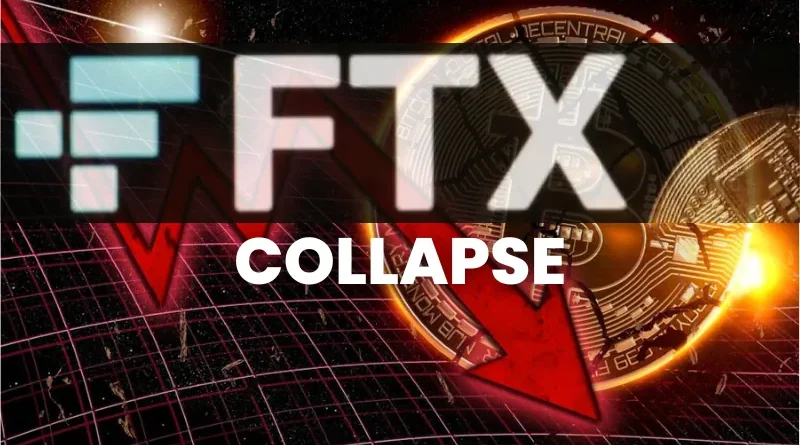6 Lessons for Investors from the FTX Collapse
Up to a million investors have lost a lot of money as a result of the crypto exchange FTX’s spectacular collapse, which sent shockwaves through the sector. The current focus of the financial market is largely on the FTX story and Sam Bankman-Fried’s unethical and criminal behavior. Long-Term Capital Management, Enron, Tyco, Lehman Brothers, and Bernie Madoff are all echoed in the real-life scenario. However, in a broader sense, we passed the one-year mark of the crypto peak quietly.
Bitcoin reached an all-time high of $69,000 on Nov. 10, 2021. Since then, HODLers have had less pain due to all digital assets, including major currencies, stablecoins, and altcoins, experiencing extreme volatility. Investors are left wondering what to do with (and where to keep) their valuables as a result of the bankruptcy of cryptocurrency lenders, crypto scams and purported exchanges.
In light of the last year’s erratic price movement and gloomy narratives that now throw a shadow over the once-loved crypto space, Crypto Current Report shares six lessons traders might learn.
Table of Contents
Trading vs. Investing
How frequently have you purchased a stock only to watch it lose value right away? To everyone of us, it occurs. Cutting losses quickly and preventing a short-term trade from becoming a long-term loser in your portfolio are frequently the defining characteristics of successful traders as opposed to those who struggle. Knowing your timing is crucial, and this also applies to the trade’s exit side.
Make a cash plan
We should admit that during much of the 2021 stock and cryptocurrency boom, many had a large cash buffer. Due to the low rates on savings accounts, most of them opened a few alternative asset accounts. Although those have performed reasonably well, the complexity, additional tax obligations, and need to routinely check another account make it appear unnecessary. Due to the COVID stimulus programs, many investors had soaring checking account balances and felt they had to do something with them. Enter cryptocurrency. Therefore, rather than being a truly deliberate choice of asset allocation, it might have been an investment born out of boredom.
FOMO is Real
In the years 2020 and 2021, there was a lot of cryptocurrency FOMO. We were all bored and cooped up at home a lot, money was burning holes in people’s pockets, and we couldn’t help but observe that everyone else seemed to be doing well in stocks and cryptocurrencies. According to a poll, 70% of cryptocurrency owners started investing in 2021. Unfortunately, those people are now the bagholders.
Wisely use the Leverage
How much of money would you have borrowed if you had the opportunity to purchase Amazon at its IPO price in 1997 in order to increase your long-term return? 3 or 4 times? More? If so, the dot-com crash would have wiped you out. Even for experienced traders, leveraging a risky asset like bitcoin or ether can lead to their demise eventually.
Position Sizing
The widespread consensus is that you should allocate an item to your portfolio more sparingly the more volatile it is anticipated to be. If the implied volatility (IV), for example, is 100%, then perhaps a 1% size is appropriate for either cryptocurrency or stocks. A 4% stake would be appropriate if the IV is relatively low, about 25%. However, following this general principle can help you better manage risk and get some sleep at night.
Back up your Crypto Transaction Records
No matter where you store your digital currency, experts advise downloading your transaction history on a regular basis. One of the most challenging aspects of cryptocurrency taxes is gathering reporting documentation, and even if an exchange shuts down, you’ll still need paperwork to submit your return. Additionally, it will put you in a much better position during tax season.
Bottom Line
Why would you follow financial advice from a celebrity? But that’s exactly what investors did with FTX, a product that was backed by A-list celebrities including NBA player Shaquille O’Neal, NFL quarterback Tom Brady, his ex-wife, model Gisele Bundchen, and Seinfeld writer Larry David. All were experts in their chosen fields, but finance wasn’t one of them. According to CNBC, there are stern reminders that “there is no such thing as a free lunch” thanks to the FTX crash.
Reviewing your trading and investing strategies now would be a good idea given the terrible timing of the FTX blowup and the one-year anniversary of the crypto high. Make rules for yourself and stay away from sloppy investment at all times.

